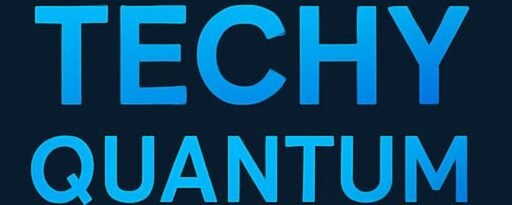Quantum computing is moving from theory to real world business impact and Microsoft just put the spotlight on it. During a recent earnings call, Microsoft CEO Satya Nadella made a major statement about the future of Azure Quantum IonQ, signaling that quantum technology will play a key role in the company’s cloud growth strategy. For IonQ, this is more than good news it’s a market changing moment.
Microsoft’s Quantum Commitment and IonQ’s Role
Nadella’s comments make it clear Azure Quantum IonQ isn’t just an experimental feature it’s becoming a core part of Microsoft’s vision for the next generation of cloud services. Azure Quantum already allows developers and enterprises to access IonQ’s quantum hardware directly through the cloud, eliminating the need for complex on premises setups.
This means businesses can start experimenting with quantum algorithms today, without waiting years for their own hardware. With Microsoft actively promoting this integration, IonQ’s reach into enterprise markets could grow dramatically.
Why the Partnership Matters
Dr. Christopher Monroe, co-founder of IonQ, explained in a recent panel, Quantum isn’t about replacing classical computing it’s about unlocking solutions we’ve never had before. Having Microsoft integrate IonQ into Azure puts us right where businesses are making decisions every day.
This reflects a growing consensus that partnerships between cloud giants and quantum specialists will accelerate adoption and revenue. One logistics giant recently tapped into Azure Quantum IonQ to improve delivery routes. By running quantum optimized simulations through Azure, they cut route planning time by 78% compared to classical algorithms.
The result? Over $10 million saved annually in fuel and labor costs. This real world example is exactly what potential customers need to see before committing resources to quantum computing projects. Nadella’s endorsement could multiply such success stories across industries.
The Cloud Computing Shift
Cloud computing has already transformed how businesses scale operations, but workloads like AI training and massive simulations are pushing its limits. Quantum hardware, like IonQ’s trapped ion systems, can potentially handle these challenges exponentially faster.
By embedding Azure Quantum IonQ capabilities into Azure’s service offerings, Microsoft is essentially creating a quantum button for its customers a way to upgrade performance without reinventing their tech stack.
Industries poised to benefit include, Simulating molecular interactions for faster drug discovery. Running real time, high precision risk analysis, Optimizing global supply chains in seconds. A Rare Validation Signal.
For IonQ investors, Nadella’s comments are gold. Startups often struggle to prove their value beyond R&D, but being part of Microsoft’s strategic vision adds significant credibility.
Morgan Stanley recently forecast the quantum computing market could hit $10 billion by 2030, and companies with deep cloud integration like IonQ are likely to lead that wave.
Getting Started with Azure Quantum IonQ
When I first tried Azure Quantum IonQ for a small optimization experiment, I expected a steep learning curve. Surprisingly, the interface was intuitive, and I was able to run my first quantum job within hours.
That’s the power of Microsoft’s cloud approach lowering barriers to entry so even smaller businesses and research teams can explore quantum without heavy upfront costs.
Quantum error correction, scaling up qubit counts, and training a skilled workforce remain hurdles. But Nadella’s announcement signals confidence that these issues are being solved quickly enough to justify commercial rollout.
As Dr. Michelle Simmons, a leading quantum physicist, recently noted. Once a tech giant embeds quantum into its core platform, the market shifts from research hype to real enterprise adoption. That’s exactly what’s happening with Azure Quantum IonQ today.
A Defining Partnership
Microsoft’s latest announcement isn’t just an update it’s a turning point. For IonQ, being a centerpiece in Azure’s quantum strategy could accelerate adoption, revenue, and innovation.
The road to quantum supremacy is still long, but with Azure Quantum IonQ positioned at the heart of Microsoft’s cloud future, both companies are better placed than ever to lead the charge.

